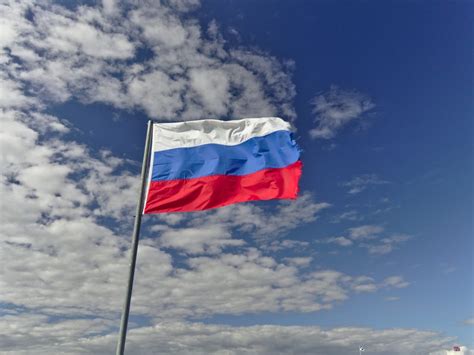

|
24A019 The War of Russian Independence by Jim Davies, 5/21/2024
Historically, Russia has very skillfully exploited its resources in defense. The country has been attacked by France under Napoleon Bonaparte, after domestic poverty followed the French Revolution as it morphed into socialism under the Jacobins; he led an army to plunder the whole of Europe (except that tiresome island to the North) to make good the shortfall. Then he went after Russia, but that was a step too far; General Kutuzov withdrew all the way to Moscow with a rearguard action to deplete French resources, and even evacuated the city. Boney then turned his army for home and it was so relentlessly harassed on the way by a well equipped, pursuing Russian army that fewer than 5% arrived. 129 years later Hitler made a similar attempt (and for similar reasons; the German prosperity of the 1930s was mostly a fraud; supplies were urgently needed without the inconvenience of paying for them) and in 1941-42 enjoyed spectacular success as the Soviet Army withdrew in front of his generals. But after the epic battle of Stalingrad (now Volgograd, East of Ukraine) his army was outnumbered with too long a supply line and was relentlessly driven back to Berlin. This record of military success was not maintained after 1945, because the pressure on Russia was not military but economic. In the dreadful disaster of 1917 the country had turned Communist, and as the USSR it deliberately destroyed its primary source of wealth: individual, capitalist enterprise. It drew sustenance from the countries to its West which it had conquered in 1945, and tried to export its ideas further; but Western Europeans were not buying. Instead, they formed NATO. The 1990 collapse was quickly dubbed a triumph of US leadership in the "arms race", during which for 40 years the inefficient Soviet economy had felt itself obliged to match military spending with that of a more efficient, partly-capitalist "West." There's some truth in that, but the root cause is that the 1922 predictions of Ludwig von Mises (that socialism is unsustainable, for it lacks the mechanism of free prices) came true; in 1990 the USSR just died with a whimper. Then began the present era. 
At first it did so cordially, with trade and tourism developing fast and with a form of transition within Russia from a command economy to a somewhat free one. The initial shambles gradually, by 2000, changed into progress and living standards rose rapidly. By 2020 the GDP per capita was two thirds that of the USA. But the FedGov tried to bring Russia into its "club" or hegemon, within which member countries' governments are subservient to the American one; and Putin of Russia was having none of that. Russians have a strong and deserved sense of independence. Partly for the pleasure of increasing its power and partly in the hope of containing China in the long term, as detailed in the ZGBlog Power Madmen a year ago, the FedGov increased pressure on Putin by adding new members to NATO and placing US bases ever closer to the Russian border; what had once been a defensive alliance of 14 became a threatening one of 28. When Russia's close neighbor Ukraine applied to join and was being considered, Putin decided that was one too many. Faced simultaneously with appeals for help by the Russophile residents of Luhansk and Donetsk who were being bombarded by Ukrainian forces for daring to secede, he invaded to help them out. After an uncertain start, it's going well for Russia. Once again, its strategy is to exhaust the enemy, this time by building strong defenses against which he can batter his head and waste his resources; so far, about half his army. It has been obvious (see The Party's Over) that Ukraine cannot possibly "win", by which is meant that the FedGov intended to wear Russia down, as it may have done in the Cold War as above. Those hopes have been dashed (though the war party in D.C. hasn't got the message yet) because Russia has rapidly adjusted its economy Eastwards; it is selling its oil and gas to China and forging closer relations with several nations collectively known as BRICS. The huge list of sanctions that were intended to wear Russia down and induce poverty have been overcome, the country's growth is positive and the former buyers of its fuels are suffering more than the producers. Meanwhile it is making weapons for the war and recruiting a good portion of its armed forces from volunteers - in sharp contrast to Ukraine, whose pool of recruits has in large part taken extended vacations abroad. Will Ukraine collapse this year, accordingly? Until April 19th that was a reasonable expectation, but then too many Republirats joined the Demofacists and voted another $61 billion of your money for this proxy war. As Karen Kwiatkowski told the UN Security Council on April 12th, this will only prolong the war and the deaths, without at all affecting the eventual outcome. Analyst Sergey Poletaev has written in a brilliant recent article that for this summer at least, Russia's best policy is to wait for Ukraine and its Western sponsors to exhaust their patience and resources; a strategy right in line with the country's defense tradition and an exact inversion of the FedGov's intent for Russia. If successful, that will add to the list yet another failed, unnecessary US war.
|
|
||||||||||||||||||||||||||||||||||||||||||||||